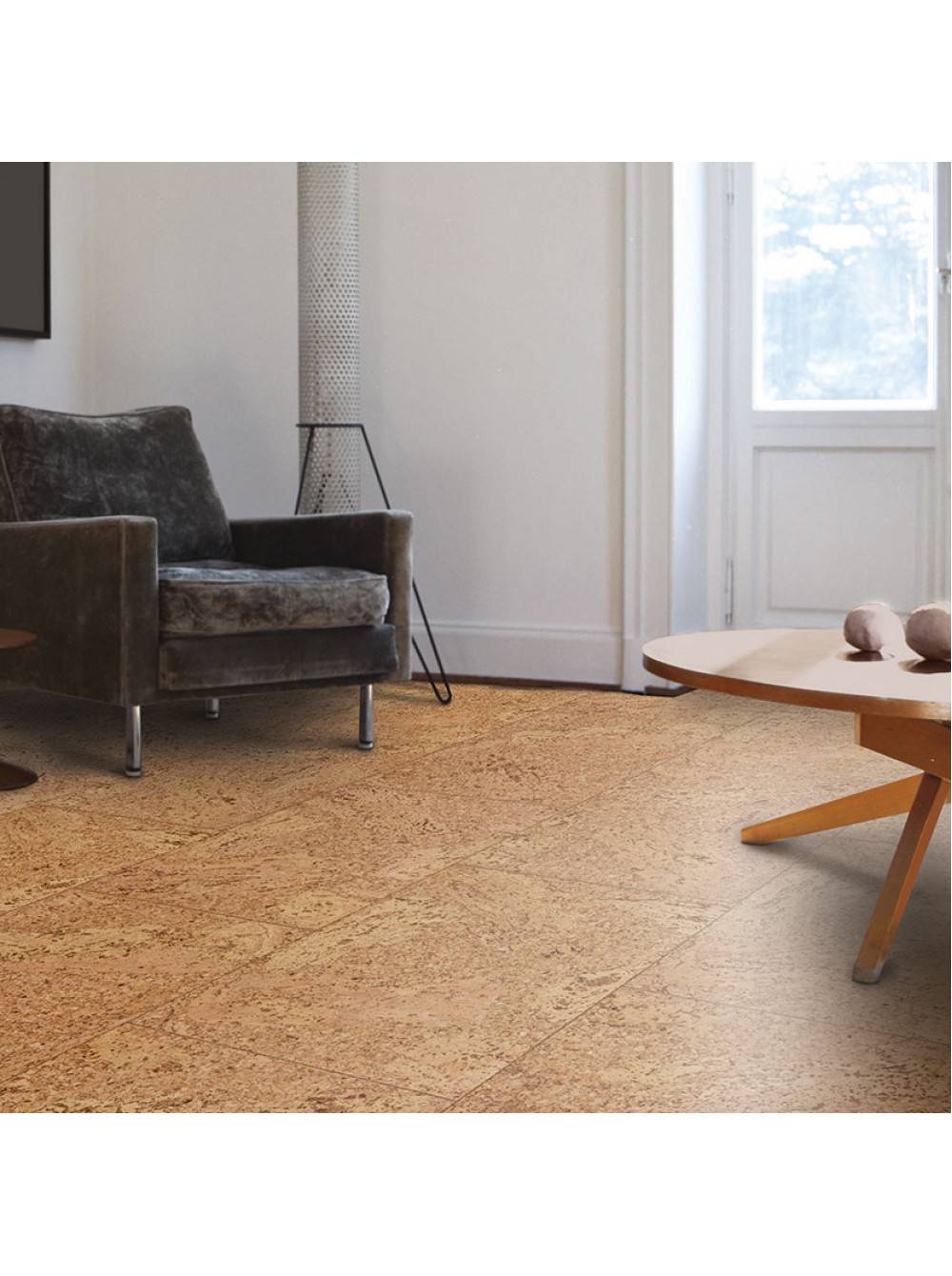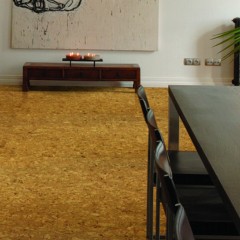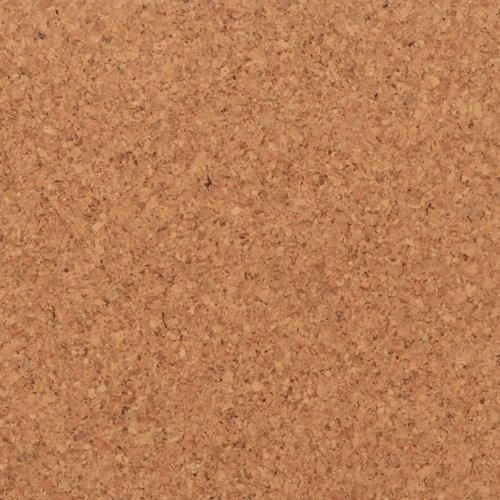Commercial Cork Flooring Tiles
Commercial cork flooring tiles are gaining popularity due to their eco-friendly nature, comfort, and durability. They provide a versatile and sustainable flooring solution suitable for a wide range of commercial spaces, including offices, retail stores, and hospitality venues. This guide will cover the benefits of cork flooring, ideal applications, design options, installation methods, and maintenance tips to help you make the most of this innovative material.
Benefits of Commercial Cork Flooring Tiles
- Eco-Friendly and Sustainable Cork is harvested from the bark of cork oak trees, making it a renewable resource. The harvesting process does not harm the tree, and the bark naturally regenerates over time. This eco-friendly material is also biodegradable and recyclable, reducing its environmental footprint. Using cork flooring aligns with sustainable building practices and green certifications.
- Comfort and Resilience Cork has a natural cushioning effect that provides comfort underfoot. This is especially beneficial for environments where employees or customers spend extended periods standing or walking. The material also offers excellent shock absorption, which reduces strain on joints and provides a more comfortable experience overall.
- Thermal and Acoustic Insulation Cork flooring tiles are known for their excellent insulation properties. They maintain a comfortable floor temperature, even in cooler environments, reducing energy consumption. Additionally, cork absorbs sound effectively, making it an ideal choice for commercial spaces that prioritize noise reduction, such as offices and libraries.
- Durability and Longevity When properly installed and maintained, cork flooring tiles are highly durable and can withstand the rigors of high-traffic commercial spaces. They are resistant to dents, scratches, and general wear and tear. Many cork tiles are coated with protective finishes that enhance their durability and help them retain their appearance over time.
- Anti-Microbial and Allergy-Friendly Cork is naturally resistant to mold, mildew, and insects, making it a hygienic choice for commercial environments. Its anti-microbial properties reduce the risk of allergens, contributing to a healthier indoor environment for employees and visitors. This makes cork flooring especially suitable for spaces such as healthcare facilities and childcare centers.

Ideal Applications for Cork Flooring in Commercial Spaces
Commercial cork flooring tiles are versatile and can be used in a variety of settings. Here are some ideal applications:
Office Spaces Cork flooring is an excellent choice for office environments due to its comfort, sound absorption, and durability. It reduces noise from footsteps and rolling chairs, creating a quieter and more focused workplace. Additionally, its soft yet resilient surface provides comfort for employees who spend long hours on their feet.
Retail Stores In retail settings, cork flooring tiles offer a welcoming and comfortable surface for customers and staff. The material’s anti-slip properties ensure safety, while its ability to absorb impact helps maintain a pristine appearance despite high foot traffic. Cork flooring can be customized with patterns and colors that enhance the overall store aesthetic.
Hospitality Venues Hotels, restaurants, and event spaces benefit from cork flooring’s combination of style and functionality. It provides a warm and inviting atmosphere while withstanding the demands of high-traffic areas. Its sound-insulating properties help maintain a calm ambiance, particularly in rooms and common areas.
Educational Facilities In schools and universities, cork flooring is valued for its durability, sound insulation, and low-maintenance requirements. It creates a comfortable environment for students and staff while reducing noise in classrooms and lecture halls. Its anti-microbial properties also make it suitable for nurseries and childcare centers.
Healthcare Settings Cork flooring is ideal for healthcare facilities, including clinics, hospitals, and wellness centers. Its anti-microbial and hypoallergenic properties contribute to a hygienic environment, while its soft surface reduces fatigue for healthcare professionals. The thermal insulation provided by cork flooring enhances patient comfort in examination and recovery areas.
Design Options for Commercial Cork Flooring Tiles
Cork flooring tiles come in a wide range of designs, allowing you to customize the look of your commercial space. Here are some design options to consider:
Natural Cork Aesthetics Many cork flooring tiles showcase the material’s natural texture and color, offering a warm and organic look. These tiles often feature patterns inspired by cork’s natural grain, creating a unique and timeless design that complements a variety of interior styles.
Stained and Colored Cork Cork tiles can be stained or dyed in a wide array of colors to match your branding or interior design theme. From neutral tones like beige and gray to bold hues like red and blue, stained cork tiles provide versatility and creativity in commercial settings.
Textured and Patterned Tiles Some cork flooring tiles are designed with embossed textures or printed patterns, adding visual interest and depth to the floor. Geometric patterns, wood-look designs, and modern motifs are popular choices for creating a statement in commercial spaces.
Plank-Style Cork Flooring Plank-style cork flooring mimics the appearance of hardwood floors while retaining the benefits of cork. These elongated tiles are available in a variety of finishes, offering a sophisticated alternative to traditional cork tiles. They are especially suitable for offices, retail stores, and hospitality venues.
Customizable Logos and Branding For businesses looking to personalize their space, cork flooring tiles can be customized with logos, brand colors, or unique designs. This feature is particularly appealing for retail stores, gyms, and corporate offices that want to reinforce their brand identity.
Installation Methods for Commercial Cork Flooring Tiles
Proper installation is crucial to ensure the longevity and performance of cork flooring. Here are some common installation methods:
Floating Floor System Floating cork floors are not glued or nailed to the subfloor but are instead connected through a click-lock mechanism. This method is quick and easy to install, making it suitable for large commercial spaces. Floating floors are also portable, allowing for easier repairs or relocation.
Glue-Down Installation Glue-down cork tiles are adhered directly to the subfloor using a specialized adhesive. This method provides a stable and permanent installation, making it ideal for high-traffic areas. Glue-down installation ensures a seamless finish and minimizes the risk of tiles shifting over time.
Underlayment Considerations Before installing cork flooring, ensure that the subfloor is clean, dry, and level. Use an appropriate underlayment to address moisture concerns and improve sound insulation. Underlayment also helps create a smooth surface for glue-down tiles and enhances the durability of the flooring.
Sealing and Finishing To protect cork flooring from moisture and wear, apply a high-quality sealant after installation. Many cork tiles come pre-sealed, but additional finishing may be necessary in high-traffic or moisture-prone areas. Sealants enhance the durability and appearance of the floor, ensuring long-lasting performance.
Professional Installation While cork flooring can be installed as a DIY project, professional installation is recommended for large commercial spaces or complex layouts. Professionals have the expertise to ensure precise installation, minimizing errors and maximizing the floor’s longevity.
Maintenance Tips for Commercial Cork Flooring Tiles
Proper maintenance is essential to preserve the beauty and functionality of cork flooring. Here are some tips to keep your floors in excellent condition:
Regular Cleaning Sweep or vacuum the floor regularly to remove dirt, dust, and debris. Use a damp mop with a mild, pH-balanced cleaner to clean the surface periodically. Avoid using abrasive cleaning tools or harsh chemicals that can damage the sealant or finish.
Protect Against Moisture While cork is naturally resistant to moisture, prolonged exposure can cause damage. Wipe up spills immediately and use mats or rugs in areas prone to water exposure, such as entrances and sinks. Ensure proper ventilation in the space to reduce humidity levels.
Reapply Sealant To maintain the protective barrier, reapply sealant as needed, typically every few years or as recommended by the manufacturer. Regular sealing helps protect the cork from stains, scratches, and moisture, ensuring its longevity and appearance.
Furniture Protection Use furniture pads under the legs of chairs, tables, and other heavy items to prevent scratches and dents. Avoid dragging furniture across the floor, as this can cause damage to the cork surface.
Address Damage Promptly Inspect the flooring regularly for signs of wear or damage, such as scratches, dents, or discoloration. Address minor issues with touch-up kits or repair compounds designed for cork flooring. For extensive damage, consider consulting a professional for repairs.
Cork Flooring: Laminate Tiles u0026 Underlayment Rolls for Commercial
Commercial Flooring Globus Cork Austin TX
APC Cork Commercial Cork Tiles Sandy Commercial Cork – Scarsdale
Globus Cork Eco-Friendly Flooring Brooklyn NY
Cork Flooring: Pros, Cons and Alternatives – Home Stratosphere
Cork Flooring: A modern floor choice? Life of an Architect
Related Posts:








